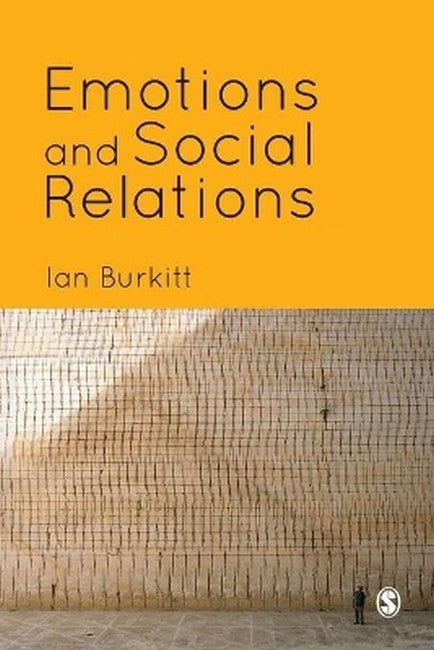Ian Burkitt is in the Department of Social and Economic Studies, University of Bradford
Request Academic Copy
Please copy the ISBN for submitting review copy form
Description
Introduction: Feeling and Emotion as Patterns of Relationship Emotions in Historical and Cultural Relations Emotions and the Body Emotions, the Body and Neuroscience Emotion, Reason and Self-Reflection Emotional Labour and Feeling Rules Emotions and Power Relations
A thoughtful, scholarly yet accessible account of emotion that speaks to current debates associated with the 'affective turn' in disciplines including sociology, cultural studies, geography and psychology... invaluable for anyone wanting to understand contemporary engagements with affect, emotion and feeling. -- John Cromby This is a lucid, engaging, and thoroughly insightful review of current social scientific thinking on emotions in social life by a leading scholar in the field. Burkitt advances a radically relational conceptualisation of emotion - one which has far-reaching implications for current debates surrounding this topic. The book is sure to become essential reading for both students and researchers interested in emotion. -- Jason Hughes A masterful exposition of the links between emotions and social relations. Ian Burkitt develops a powerful theory of emotions as arising in patterns of relationships. Extending the pragmatist approach of James and Dewey, Burkitt argues convincingly that emotions can be reduced to neither neurophysiological processes nor discursive practices, but are complexes of the physical, social and discursive realms as these are experienced by living human bodies in relationships. Empirically rich and theoretically deep, this is a highly readable book. -- Svend Brinkmann I highly recommend this book as a significant contribution to our sociological understanding of emotions. It will be of interest not only to sociologists, but to a range of scholars and students interested in emotions from disciplines such as history, cultural studies, politics, social psychology, anthropology and human geography. Although the book could perhaps more directly and fully address the gendered aspects of emotion, there is some commentary on it. Overall, it is a wide ranging, wonderfully scholarly and yet impressively accessible book. I wish I had written it, but am thankful that Ian Burkitt has provided such an important addition to our bookshelves. -- Mary Holmes, University of Edinburgh

